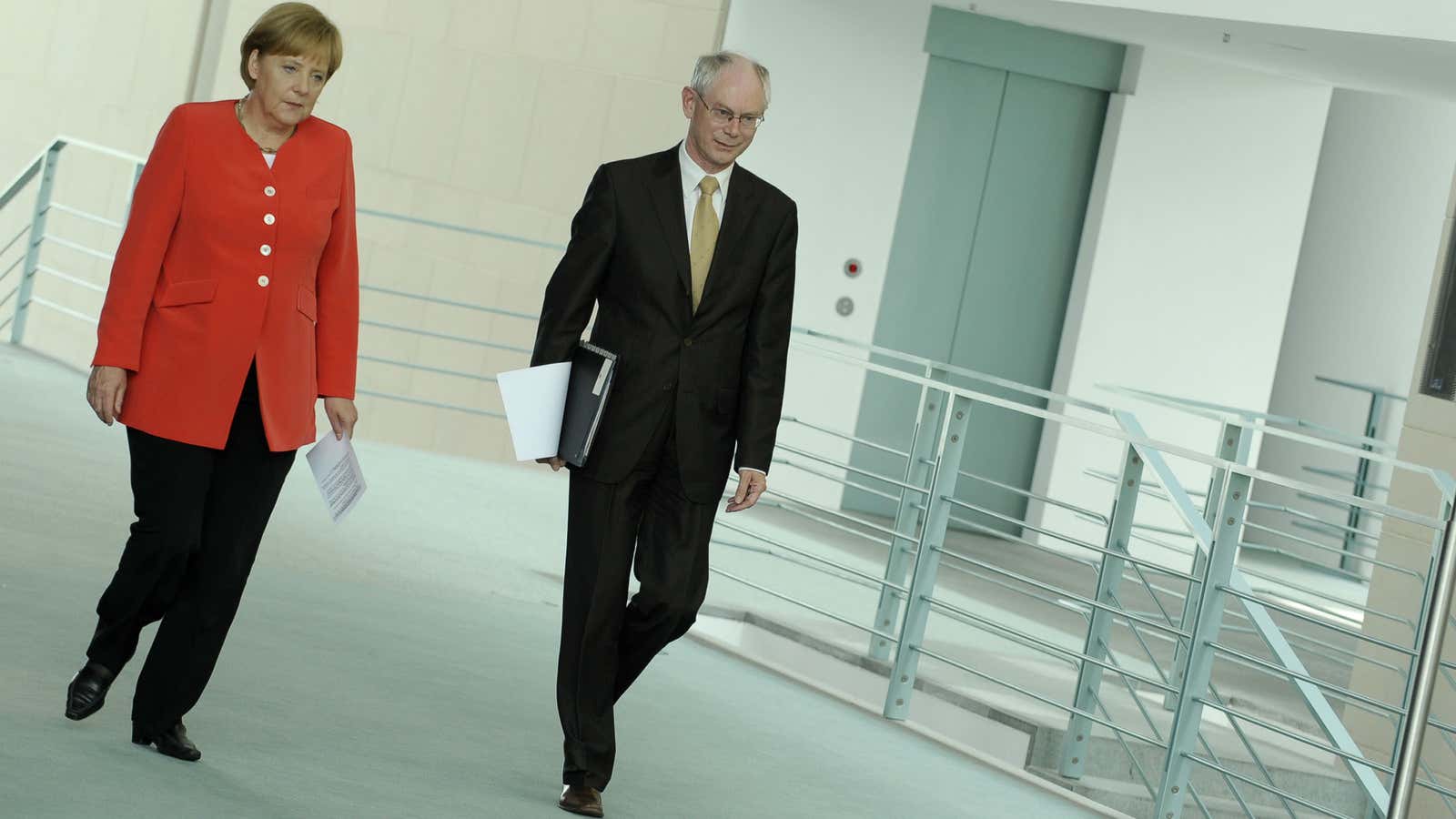Europe-watchers have been clamoring for new headlines about the prospect of a Spanish bailout and a centralized EU budget, but few realize that we’re just back where we were a few months ago. Once again, analysts are putting their faith in a summit of EU leaders due to take place on October 18 and 19. But if past EU summits are any indication, investors are setting themselves up for disappointment.
While EU leaders set themselves bold goals back in June to create a centralized banking supervisor and activate European bailout funds, very little has been done to accomplish these goals. More worrisome still, calls for a full-scale bailout of Spain are as troublesome as they are exciting. The Spanish government has never been truly insolvent—Eurostat reported that public debt amounted to just 68.5% of GDP in 2011—and the Spanish economy has been receptive to changes that will improve its competitiveness.
Morgan Stanley analysts Daniele Antonucci and Tomas Pietrzak wrote in a note published yesterday, “The adjustment in Spain is happening at a faster pace than expected, courtesy of unexpected economic flexibility.” The conditions EU leaders demand in exchange for bailout funds could restrict this flexibility. Moreover, the €100 billion ($129 billion) bailout promised to Spanish banks back in June has not even been dispersed yet, and the results of recent bank stress tests were less than reassuring.
Analysts have also jumped at reports that EU leaders are considering a central budget, hoping that this will pave the way for true fiscal transfers that would support struggling states. This, some hope, is the predecessor to a United States of Europe. Maybe, but that sort of economic union is still far off. First, it’s important to note that this effort has been primarily supported by EU Council President Herman van Rompuy, who’s better known for compromise than strong-arming. It’s also clear that EU budget plans are far from fruition. The Financial Times reported yesterday, “Officials involved in the drafting cautioned that the recommendations were aimed at stimulating discussion among the bloc’s leaders. Each proposal is mentioned as a measure to be ‘explored.'”
Indeed, the only euro zone organization that has done anything since the summer is the European Central Bank (ECB), which promised to help out countries that ask for financial aid. That’s reassuring in the long run, but even these promises rely on EU leaders to join in the effort. Bottom line: if you’re expecting a lot from the ECB tomorrow or EU leaders later this month, then prepare to be underwhelmed.
